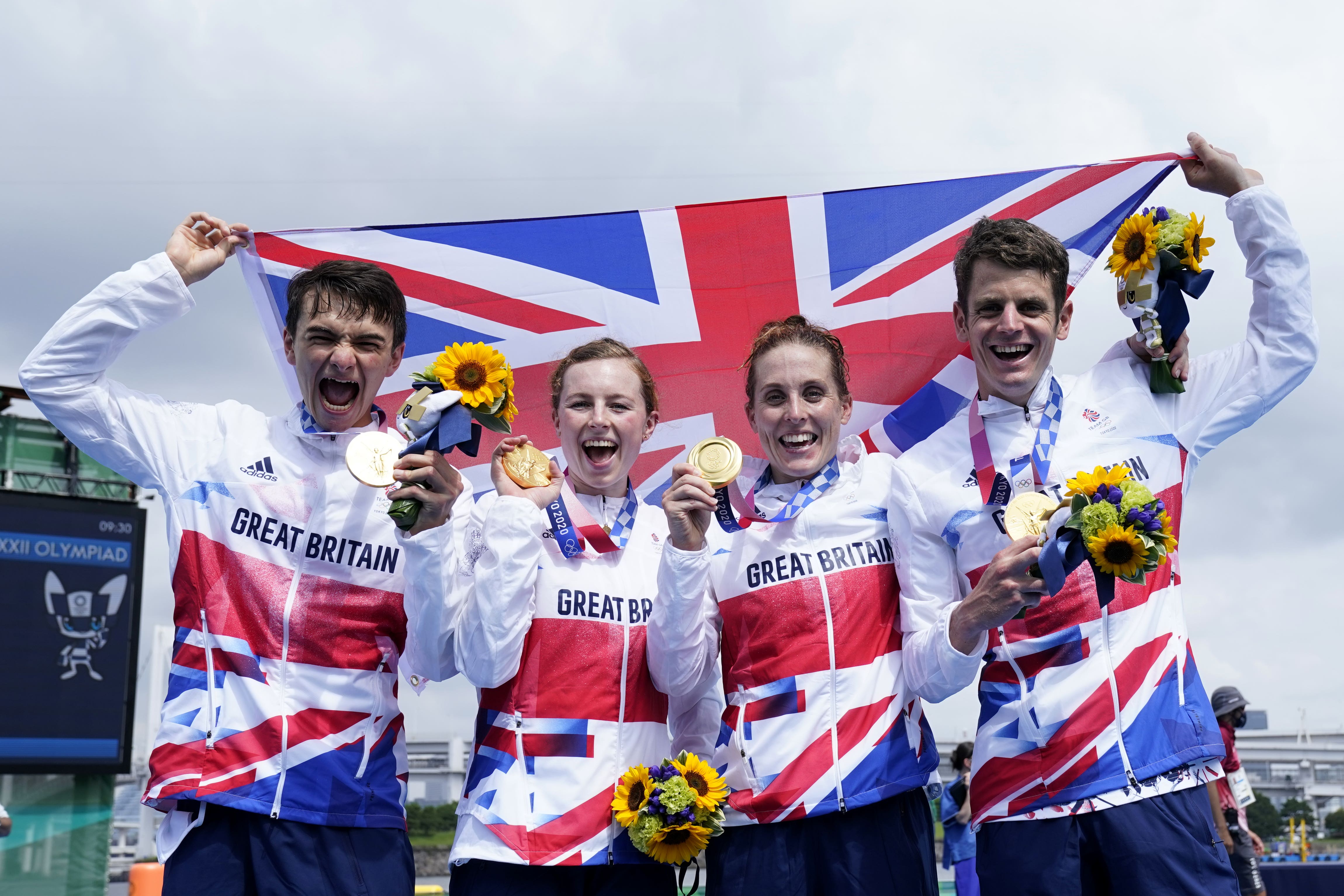Jess Learmonth pushed pregnancy boundaries on road to Olympic return
Learmonth, who won gold in the triathlon mixed relay at Tokyo 2020, became a mum for the first time when giving birth to Frederick last September

Your support helps us to tell the story
From reproductive rights to climate change to Big Tech, The Independent is on the ground when the story is developing. Whether it's investigating the financials of Elon Musk's pro-Trump PAC or producing our latest documentary, 'The A Word', which shines a light on the American women fighting for reproductive rights, we know how important it is to parse out the facts from the messaging.
At such a critical moment in US history, we need reporters on the ground. Your donation allows us to keep sending journalists to speak to both sides of the story.
The Independent is trusted by Americans across the entire political spectrum. And unlike many other quality news outlets, we choose not to lock Americans out of our reporting and analysis with paywalls. We believe quality journalism should be available to everyone, paid for by those who can afford it.
Your support makes all the difference.Olympics champion Jess Learmonth says she pushed the boundaries during her unexpected pregnancy in a bid to keep her Paris 2024 dream alive.
Learmonth, who won gold in the triathlon mixed relay at Tokyo 2020, became a mum for the first time when giving birth to Frederick last September.
The 35-year-old from Leeds fell pregnant during her recovery from a serious hip injury and, having not competed since May 2022, is on a mission to get back to her best in time for this summer’s Olympics.
She told the PA news agency: “I probably shouldn’t have run on the day I gave birth. I actually pulled my calf on a run in the morning and then gave birth that evening.
“Looking back, I was heavily over my usual running weight and obviously my gait was completely different because I had a big belly.
“Maybe if I hadn’t pulled my calf I’d have said it was fine. But yeah, looking back, with two weeks to go, I probably could have just chilled out a little bit.”
Learmonth, determined to hit the ground running once Frederick was born, found medical research into training while pregnant to be limited.
Until the turn of the century, it was rare to see women return to the top of their sport after giving birth.
Learmonth is grateful to the doctors and sports scientists at the National Sports Centre at Bisham Abbey and British Triathlon for their support.
“There were certain things I obviously did follow,” she said. “The massive one is not running for 12 weeks post-birth. If you come back too early, you can have problems later down the line.
“I followed all the advice, but it was the stuff they weren’t sure on that I kind of explored myself. I was still lifting heavy weights in the gym. I took the information and filtered it for me. They helped me find my own boundaries and explore what I could and couldn’t manage.”
Learmonth stressed that throughout her pregnancy she never allowed her heart rate to go beyond 150 beats per minute, while her approach, so far, appears to be paying off.
Running aside, she is closing in on the performance levels that saw her win Olympic gold and finish second overall in the 2019 World Series after multiple podium finishes.
“I’m not far away,” said the 2017 European champion. “I’m just not as good as I was before, yet. There have been big changes in my life, having Fred and not training as much.
“It’s interesting to see how my body will react to doing less training and more recovery. It could go either way.”
Learmonth has been surprised by her progress as she targets the first Indoor World Cup event of the season in Lievin, France, for her return to competitive action at the end of March.
“I think Frederick’s helped me a lot because we’ve done a lot of tests in the lab and my numbers are probably just as good, if not better, than pre-pregnancy, certainly on the bike, which has kind of baffled me really,” she said.
“I don’t know if having him and the different hormones you get from having a child and post-birth has kind of helped me out, but it’s been really, really motivating.
“But after pregnancy, I’ve found it a lot harder than I thought I would, mainly because of the logistics of him feeding and napping. I’m breastfeeding as well, so it’s difficult to get the timing right. I have to make sure, logistically, I’m on it.”

Learmonth, made an MBE in 2022, will not be the first triathlete to return to top-level action after giving birth as fellow Brit and former world champion Vicky Holland and Americans Katie Zaferes and Gwen Jorgensen have paved the way.
“They’ve definitely inspired me,” Learmonth added. “I just wish there was more definitive research out there that shows athletes can have children and come back and be just as good.
“There’s still a lot of stigma around training through pregnancy and certainly what I was doing and I’d love to help get more exposure and help inspire all new mums who want to get back into sport.”
Join our commenting forum
Join thought-provoking conversations, follow other Independent readers and see their replies
Comments